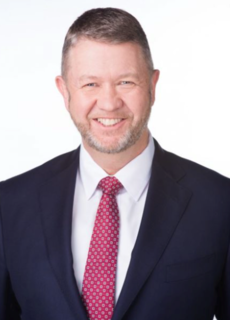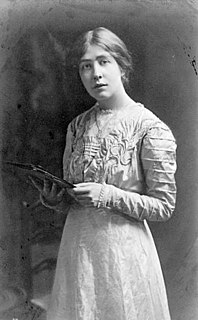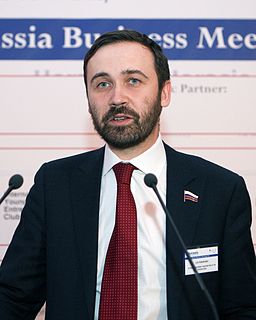A Quote by David Cunliffe
Socialism's not a word that I use. I say 'social democracy' because I don't think the government needs to own all the means of production.
Quote Topics
Related Quotes
The word "democracy" is a Western word obviously. It doesn't exist in Arabic. Democratiya is a loan word. We in the Western world make the great mistake of assuming that ours is the only form of good government; that democracy means what it means in the Anglo-American world and a few other places in the West, but not many others. Muslims have their own tradition on limited government. Now in Islam, there is a very strong political tradition. Because the different circumstances, Islam is political from the very beginning.
All that socialism means to me, to be very frank with you, is democracy with a small 'd.' I believe in democracy, and by democracy, I mean that, to as great an extent as possible, human beings have the right to control their own lives. And that means that you cannot separate the political structure from the economic structure.
The difference between [socialism and fascism] is superficial and purely formal, but it is significant psychologically: it brings the authoritarian nature of a planned economy crudely into the open. The main characteristic of socialism (and of communism) is public ownership of the means of production, and, therefore, the abolition of private property. The right to property is the right of use and disposal. Under fascism, men retain the semblance or pretense of private property, but the government holds total power over its use and disposal.
My political tradition is on the left, but I think that more modern leftists, they sometimes get stuck with this vision of large government and social benefits and everything and that's against what is my position, because I think that the ultimate vision of Marx, Engels, and those people was to eliminate government entities and to give as much power to the people. And in modern standing that means direct democracy, that means all the power to the communities, it means gradually eliminating all government oppression on the society. And 100 years ago, leftists' major allies were labor unions.
Democracy has become, unless I mistake, a kind of test or shibboleth, by which we try men and measures; and this is the same as to say that it is merely a word which is powerful with us, and not the wide and true notion of what the word means. But we must define the true import of words, and not be slaves to syllables; for democracy in form is not necessarily people-power in fact, but power perhaps of a few, who cajole the many and so lead and use the people for their own ends.
Capitalism means free enterprise, sovereignty of the consumers in economic matters, and sovereignty of the voters in political matters. Socialism means full government control of every sphere of the individuals life and the unrestricted supremacy of the government in its capacity as central board of production management.
Capitalism and socialism are two distinct patterns of social organization. Private control of the means of production and public control are contradictory notions and not merely contrary notions. There is no such thing as a mixed economy, a system that would stand midway between capitalism and socialism.






























